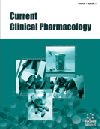-
oa Editorial [Hot Topic: Compliance, Adherence and Concordance in Medicine Taking of Psychiatric Patients (Guest Editor: Carlos De las Cuevas)]
- Source: Current Clinical Pharmacology, Volume 6, Issue 2, May 2011, p. 71 - 73
-
- 01 May 2011
Abstract
Although Hippocrates, almost 2500 years ago, recognized the difficulties of patient compliance when he wrote “Keep watch also on the faults of the patients, which often make them lie about the taking of things prescribed” [1], the topic continues to produce considerable controversy at present. Dictionaries tend to be slow assuming the evolution of language and incorporating new terms. However, in medicine it is essential the rapid incorporation of new terms or changing the existing ones in order to communicate new ideas, concepts and practices. Compliance, adherence and concordance are a clear example of this fact. At the present time, psychiatric disorders are a growing public health concern worldwide. By the year 2020, the proportion of the contribution of neuropsychiatric conditions to overall disability is expected to be about 20%, compared with only 9% in 1990 [2]. Although psychological treatments of proven efficacy are available for the management of the majority of psychiatric disorders, the most common form of treatment worldwide is the use of psychoactive medication. The appropriate prescription of medicines is a core element of the delivery of modern mental health with psychoactive drugs widely used not only to relieve symptoms and cure conditions but to prevent relapses in the future. Nevertheless, there is a considerable gap between best care, defined as the optimal use of proven efficacious pharmacotherapies in psychiatric disorders, and usual care, the actual level of efficacious care being provided to psychiatric patients. In particular, poor adherence to pharmacologic treatment of psychiatric disorders is a worldwide problem of striking magnitude that contributes to the gap care. Non-adherence prevents patients from gaining access to the best treatment, and this may be particularly problematic in psychiatric disorders. A number of rigorous reviews have found that, in developed countries, adherence among patients suffering chronic diseases averages only 50% [3-5]. The magnitude and impact of poor adherence in developing countries is assumed to be even higher given the paucity of health resources and inequities in access to health care [6]. The factor that appears to most strongly correlate with adherence is the patient's own beliefs influenced by personal knowledge and experience [7] as well as that of family and friends [8]. Understanding the patient perspective allows the provider to give treatment options congruent with patient needs and values [9]. A patient-centered approach is essential to promoting adherence and current levels of non-adherence imply a failure to address patients' needs and preferences and represent a fundamental inefficiency in the delivery and organization of the public health systems [10]. One of the most noticeable changes in health care over the last few decades has been the increased involvement of patients in their treatment decisions [11]. Health care has been evolving away from a "disease-centered model", where physicians make almost all treatment decisions based largely on clinical experience and data from various medical tests, and toward a "patientcentered model", where patients become active participants in their own care and receive services designed to focus on their individual needs and preferences, in addition to advice and counsel from health professionals. At the present time, patient-centered care is recognized as a measure of the quality of health care [11]. Studies relate that patient-centered care improves communication, promotes patient involvement in care, creates a positive relationship with the provider, and results in improved adherence to treatment plan [12, 13]. Indeed this has lead to replacement of the more authoritarian term ‘ compliance’ with that of ‘ concordance’ as a primary aim of the consultation. The latter term suggests a “ &hellip frank exchange of information, negotiation, and a spirit of cooperation” [14]. The articles included in this Current Clinical Pharmacology Special Issue are based on the best available evidence on compliance, adherence and concordance in medicine taking of psychiatric patients. This special issue contains highly significant papers arising from the experience and knowledge of professionals belonging to academic university field, health care system, research institutions, and government planning services. These papers will be of help to all mental healthcare professionals by providing guidance on how to involve patients in the decision to prescribe medicines and on how to support patients in their subsequent use of medicines. De las Cuevas, from the Pharmacoepidemiology and Drug Use Studies Research Group at the University of La Laguna in the Canary Islands, Spain, clarify in his paper the terminology used in relation to patients' medication-taking behavior: compliance, adherence and concordance bringing recommendations for the adequate use of terminology. Cabrera, from the Department of Psychiatry at the Queen's University in Kingston, Ontario, Canada, in an exquisite short piece, charts the contemporary history of the term “compliance” and its cognates, discusses the recently published guidelines concerning the assessment of adherence in patients with serious mental illnesses and stresses that improving the assessment of adherence and favoring its enhancement can generate interesting ethical quandaries that will be approached in the light of the relatively new emergent notion of “moral distress.”.....


